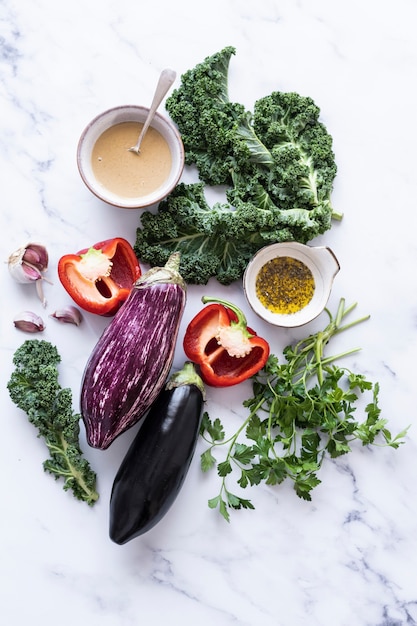
Have you tried Veganuary this year, or are you thinking about shifting to vegan or plant-based eating? Dr. Gemma Newman has some tips that could help you out.
With so many diets like low fat, high fat, low carb, high carb, vegan, paleo, and keto, it can get quite confusing. But which one actually works, and which is the best for your health?
Veganuary is gaining momentum each year. In 2018, 170,000 people participated, marking a 183% increase from the previous year. By the following year, over 250,000 had joined, and this year the numbers are expected to have gone up again.
Is going vegan healthy? What sets it apart from other diets claiming to be good for you?
There’s a lot of mixed information out there about nutrition, mainly spread by the media, food companies, and even some health experts.
However, it’s hard to argue against the benefits of eating lots of fruits and vegetables and choosing whole, unprocessed foods. Cutting back on processed meats, sugary cakes, candies, and sugary drinks is always beneficial.
Often, when people aren’t clear on what’s healthy, they stick to old eating habits, claiming “everything in moderation” is fine. But that’s not always true. Just as we don’t suggest smoking even in moderation, the same goes for sugary drinks and processed meats. You wouldn’t give your child a cigarette, so why a hot dog or chicken nugget? According to the World Health Organization (WHO), processed meats are a class 1 carcinogen, known to cause cancer. So whether in moderation or not, they aren’t good for you.
Dr. David Katz, a founder of the American College of Lifestyle Medicine, along with renowned nutrition scientists, formed the ‘True Health Initiative,’ agreeing on a diet rich in vegetables, fruits, beans, nuts, seeds, whole grains, and plenty of water as essential for good health.
If you compare a paleo meal plate to a whole food plant-based plate, you’ll find they have more in common than they do with a typical Western diet.
Let’s focus on diets that promote heart health since heart disease is still the leading cause of death. The only diet proven to reverse artery blockage in a matter of weeks is the whole food plant-based approach. This was initially proven in 1990’s Lifestyle Heart Trial and similar results have been seen in more recent studies like the Mount Abu Heart Trial. Until a new approach proves more effective, it’s wise to adopt a mostly whole food plant-based diet.
For those used to a Western diet, switching to plant-based might seem daunting, but it’s achievable. Kudos to those who completed Veganuary. If you want to start with plant-based eating but feel unsure, consider starting with some beginner-friendly cookbooks.
“So Vegan in 5” by Roxy Pope and Ben Pook offers over 100 simple recipes using just five ingredients readily available at your local store. “BOSH!” by Henry Firth & Ian Theasby also provides over 80 healthy vegan recipes. They emphasize learning to cook plant-based meals that are truly tasty.
Exploring vegan on Instagram can also be inspiring, as you’ll find people’s journeys into plant-based eating. Making the transition can begin by adapting your favorite meals, like swapping chicken for chickpeas in a curry or using lentils instead of beef in Bolognese.
Experiment with new flavors so that your shift to plant-based eating is a fun exploration. Maybe start by having a plant-based breakfast a few times a week, then move on to lunch. Gradually, make more meals plant-based until you have a good rotation replacing old habits.
Switching to a fully whole food plant-based diet can yield quicker health benefits, often within two to three weeks. However, your gut bacteria may take time to adjust, potentially causing some bloating initially.
Both the American and British Dietetic Associations state that well-planned plant-based diets support healthy living across all ages and may help prevent diseases. Plant-based diets are linked to reduced risks of heart disease, cancer, chronic respiratory disorders, allergies, and infections in children, thus improving health both now and in the future.
The British Dietetic Association has started the Blue Dot Campaign to stress the importance of dietitians offering plant-based dietary advice accessible to all.
The nutrient depletion in our world today, due to mass agriculture and pesticide use, often results in deficiencies in essential nutrients like magnesium, folate, and fiber. A Western diet tends to increase the risk of obesity and chronic diseases, which a whole food, plant-based diet can improve.
Following a well-planned whole food plant-based diet increases nutrient density, focusing on foods rich in vitamins, minerals, fiber, and antioxidants. Influential figures like Dr. Joel Fuhrman advocate for this nutritarian approach.
However, certain supplements might be necessary, particularly for those eating strictly plant-based and excluding all animal products. Vitamin B12 is one crucial supplement. Adults need only 1.5 mcg a day, but it’s safer to take 10 mcg daily or 2000 mcg weekly to prevent deficiency and support heart health by breaking down excess homocysteine.
Vitamin B12 is naturally found in animal products due to micro-organisms in their environment, not from the animals themselves. So, supplements or fortified foods are essential sources, especially since absorption can decrease with age or certain health conditions. It’s wise to check your levels and supplement as needed, particularly for those with diabetes.
Vitamin D is another supplement to consider if you’re not making enough from sunlight. A rule of thumb is that you’re making sufficient vitamin D if your shadow is shorter than your height. Otherwise, consider taking 1000-2000 IU daily.
EPA/DHA are valuable omega-3 fatty acids from algae, which support heart health without relying on fish sources that may contain some contaminants. Flaxseeds are another excellent option; consuming one to two tablespoons of milled flaxseed daily can help maintain healthy blood pressure and heart health.
Dr. Gemma Newman, a medical professional with extensive experience, supports these dietary changes and provides her expertise to those interested in improving their health through plant-based eating.